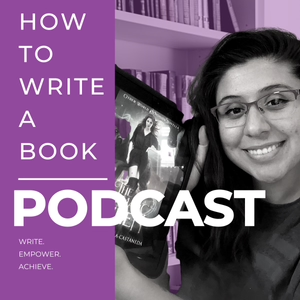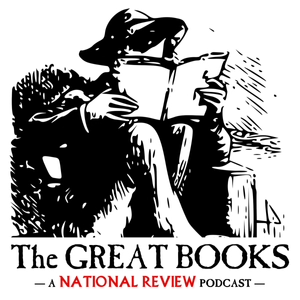
Ep 84: Your Writing Platform – Do People Expect Writers to Be Speakers?
01/13/17 • 5 min
Previous Episode

Ep 83: Your Writing Platform: What’s the Definition of Platform (and Do I Really Need One)?
At a writing conference a few years ago, I attended a panel discussion that included acquisitions editors from several publishing houses and a couple of literary agents. I’d been wanting to meet one of the agents, so after the session, I stood in line to introduce myself. I told him I was a writing coach working with several authors who were developing book proposals. These authors had questions about platform. “What kind of numbers are agents and publishers really looking for?” I asked. “And how would I know if I have an author you might be interested in?" He said he couldn’t speak for all agents or publishers, but as an example of the platform size he was looking for, he would only consider authors with a minimum of 10,000 Twitter followers. Platform: Numbers Matter I asked another literary agent the same question recently, especially regarding platform. Though she didn’t commit to 10,000 as the ideal, she said numbers do matter. “It’s not me,” she said. "It’s the publishers. They’re the ones asking for us to bring them authors with significant platforms because they want to guarantee a certain number of sales.” Authors as Business Partners Chad R. Allen, editorial director for Baker Books, said in an interview that when he’s reviewing book proposals, he always has three things in mind: "concept, platform, writing.” After he looks at the book idea to see if it’s a fresh, marketable concept, he then turns to the author bio, to learn about the author "not only in terms of how good a writer they are, but also in terms of what are their connections, what’s their platform, what is their ability to bring exposure to their own book.” He says, "Authors are artists–we all know that–but they are also business partners, particularly when they sign a book contract.” Chad said, "The #1 reason we turn books down is no platform or lack of platform.” Definition of Platform So we can’t ignore the need for platform, but still...what is it? Chad offered a quick definition when he said he wants to learn about a writer’s connections and their ability to bring exposure to their own book. Literary agent Chip MacGregor says essentially the same thing: "a platform is simply the number of people you can reach with your words.” He then lists several ways you can reach people: through speaking events, a blog, articles in other publications, television or radio appearances, leadership positions that would give you influence over a large group or organization. Chip says, "All of those are points of contact with potential readers...[A]dd up the audiences for all the ways in which you reach out, and that’s your platform." That’s what it comes down to: How do you reach people with your words and can you reach more of those people? Does Your Platform Reach the Right People? Literary agent Rachelle Gardner emphasizes that "the key to platform is your target audience and what you are doing to reach them.” In other words, who cares if you have 10,000 Twitter followers if they aren't the target readers of your next book? If I plan to publish a cookbook for backpackers but have been building a huge connection with business professionals focused on developing powerful speaking skills simply because I have an interest in both of those topics...I may need to rethink my strategies and find ways to build up a following among outdoor enthusiasts, campers, and, well, backpackers. I could write articles for Backpacker Magazine and join forums that talk about gear and destinations and food as some platform-building efforts. Or I could write a different book. About speaking techniques for business professionals. The point is: build a relevant platform. If you think you know what your book will be about, focus on how to reach readers who will love that book. Rachelle added the realistic, if sobering, reminder: "It’s smart to begin building your platform well before you hope to be published—years, even.”
Next Episode

Ep 85: Now Is the Time to Start Building Your Platform
There’s a proverb that says “The best time to plant a tree was 20 years ago. The second best time is now.” It’s true of so many things, isn’t it? We would be in such a different place if only we had started years ago. Building a platform might feel a little bit like that, but it’s not too late. If you haven’t already begun, the best time to start is now. Most of our platform-building efforts are like dropping coins and stuffing the occasional bill into a jar to save money for a vacation. Some actions don't feel like they are adding much—you drop in a couple of quarters, a couple of dimes, a dollar bill. You pick up the jar and shake it and just a few coins jingle and jostle against each other. Man, at this rate I’m not going to make it to Florida for another five years! Then you do something—or something just happens—making a bigger impact. It's like stuffing a $20 bill in the coin jar. You see that and you think, Okay, okay...maybe this trip isn’t just a fantasy. Maybe I can get there if I keep at it. So you keep at it. A tweet might be a quarter in the jar, but then someone with a big following retweets you and a dozen new people click like, read your post, and share it. The quarter turned a $5 or $10 "profit" and all that goes in the jar. You record a YouTube video, and a few people watch it. Maybe that's like a $5 bill going in the jar. You post another, and it gains traction. Soon, people are eager for the next, and the next. In time, with these efforts, your name is known by more and more people. They're paying attention to you. They're finding you in Google searches. Someone interviews you on a podcast. You get a speaking gig. You contribute a chapter to a book. You keep tweeting, you keep recording videos—whatever your main outlets are, you keep those going. It builds. It grows into something substantial. Your website and social media accounts represent opportunities. A good practice might be to take some action of some kind each day. Some days are busy, so you tweet something. Some days offer you a chunk of time, so you write a short blog post or pitch an idea for a guest post somewhere. You share a link on Facebook and Pinterest. You upload an image related to your brand on Instagram. You'll meet people in these places. You'll interact. You'll like something they’ve posted that relates to your work, or you'll read their post and share it. That's how it starts. That's how it continues. That's how it adds up. Now, let me caution you not to grab a handful of coins and hurl them out willy-nilly. For example, don’t sign up for every social media platform and dive in full force. My examples might have implied you have to be at all those places all the time, which isn’t the case. Pick one that makes sense to you—one social media platform you’re already familiar with, where your target readers hang out, where you might already be seeing success. For example, if you have some speaking skills, think video and don’t worry about Twitter and Pinterest right now. If you love photography and you’re already enjoying Instagram, start there. Get to know it. The sweet spot is when you find something you love doing, and your target audience loves it, too. Don’t give up if you don’t see results right away. In the beginning, you’re just tossing in nickels, dimes, and quarters. It takes a while when you’re only seeing coins. But, as I said, over time you’ll start to see the efforts accumulate. At some point, you'll hit a tipping point and cha-ching! Your efforts no longer feel like you’re just flinging a coin into a fountain and making a wish. It starts to feel meaningful as you interact with people and start to see the kind of content and support and stories they respond to. You tweak your content to best serve those readers, listeners, or subscribers. You write Facebook updates with intention and energy, and you tweet in your own voice. Small investments over time pay off when it comes to ...
If you like this episode you’ll love
Episode Comments
Generate a badge
Get a badge for your website that links back to this episode
<a href="https://goodpods.com/podcasts/ann-kroeker-writing-coach-10069/ep-84-your-writing-platform-do-people-expect-writers-to-be-speakers-87802234"> <img src="https://storage.googleapis.com/goodpods-images-bucket/badges/generic-badge-1.svg" alt="listen to ep 84: your writing platform – do people expect writers to be speakers? on goodpods" style="width: 225px" /> </a>
Copy




